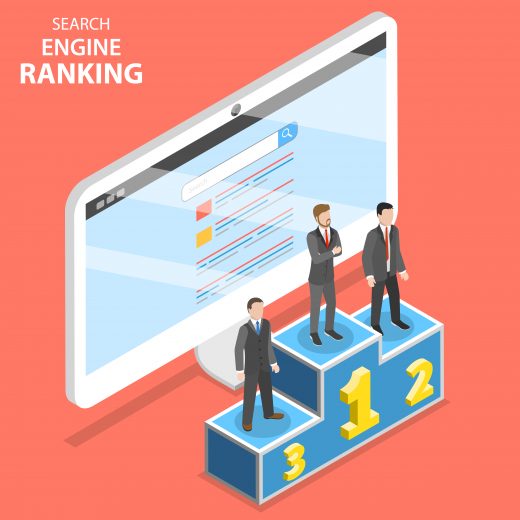5 Tips for Increasing Your Keyword Rankings in Google

In today’s digital world, having a strong online presence is critical to the success of any business. However, it’s not enough to simply have a website; you need to ensure that your site appears at the top of search engine results when potential customers are searching for products or services related to your business. This is where keyword rankings come in.
Keyword rankings refer to the position of your website in search engine results pages (SERPs) for specific keywords or phrases. The higher your website appears in the search results, the more likely it is that potential customers will click through to your site. Therefore, increasing your keyword rankings is essential if you want to drive more traffic to your website and generate more leads and sales. In an ideal world, all of your target keywords would be featured on page one of the SERP, i.e. top 10 positions. There are lots of tactics to employ when it comes to increasing your keyword rankings, but here are five tips to get your started…
Conduct Keyword Research
The first step in any SEO strategy is to conduct thorough keyword research. You need to identify the keywords and phrases that potential customers are using to search for products or services related to your business. There are various tools available, such as Google Keyword Planner and Ahrefs, which can help you to identify relevant keywords and estimate their search volumes. Once you have identified your target keywords, you can start optimising your website accordingly.
Optimise On-Page Elements
On-page search engine optimisation refers to the process of optimising various elements on your website to make it more search engine friendly. This includes ensuring your website has s title tags, meta descriptions, headers, and content containing your target keywords. You should ensure that each page on your website has a unique title tag and meta description that accurately reflects the content of that page. Additionally, you should use headers (H1, H2, H3) to structure your content and include your target keywords where appropriate. However, it’s important to avoid keyword stuffing, as this can result in a penalty from Google.
Build High-Quality Backlinks
Backlinks are one of the most important factors that Google uses to determine the authority and relevance of a website. A backlink is simply a link from another website to your site. However, not all backlinks are created equal. You need to focus on building high-quality backlinks from reputable websites in your industry. One way to do this is to create high-quality content that other websites will want to link to. You can also reach out to other websites and ask them to link to your site. However, it’s important to avoid spammy tactics such as buying links, as this can result in a penalty from Google.
Improve Website Speed and User Experience
Website speed and user experience are also important factors that Google considers when ranking websites. If your website is slow to load or difficult to navigate, this can negatively impact your keyword rankings. You should ensure that your website is optimised for speed by compressing images, minifying code, and using a content delivery network (CDN) to reduce load times. Additionally, you should focus on providing a positive user experience by ensuring that your website is easy to navigate, has a clear call-to-actions, and is mobile-friendly.
Monitor and Analyse Your Keyword Rankings
Finally, it’s important to monitor and analyse your keyword rankings on a regular basis. This will help you to identify which keywords are driving the most traffic to your site and which ones need more attention. You can use tools such as Google Analytics and Ahrefs to track your keyword rankings and identify opportunities for improvement.
In conclusion, increasing your keyword rankings in Google requires a comprehensive SEO strategy that involves keyword research, on-page optimisation, backlink building, improving website speed and user experience, and monitoring and analysing your keyword rankings. By following these tips, you can improve your website’s visibility in search engine results, drive more traffic to your site, and ultimately increase your leads and sales. If you need help ensuring your website is fast loading, user-friendly, and optimised for search, don’t hesitate to contact us. We’d also be happy to discuss an SEO campaign with you to help you acquire high quality backlinks.






